Severe heat wave hits India as phase 2 of polling begins
India is preparing for "severe heatwaves" during its mammoth election, with public health experts cautioning that millions of voters could be in danger and local authorities expressing concerns that voter turnout might be impacted.
Spanning six weeks with roughly a billion eligible voters, the general elections recommenced with its second phase on Friday as people queued outside polling centers in regions affected by a severe heat wave.
Millions of voters will have to endure the scorching heat as they venture out to cast their votes.
The India Meteorological Department (IMD) issued a warning on Thursday regarding the likelihood of severe heatwave conditions in certain regions of eastern and northern states of West Bengal, Odisha, Bihar, Jharkhand, Uttar Pradesh, and southern states of Andhra Pradesh, Telangana, Karnataka, over the upcoming five days.
Certain regions in the states of West Bengal, Bihar, Uttar Pradesh, and Karnataka, which are part of the 13 states and union territories involved in the second phase of India's extensive elections, are predicted to witness temperatures exceeding 40 degrees Celsius, while some areas also carry red alert warnings.
Baripada in Odisha recorded a temperature of 43.6 C (110.4 F) while Khammam in Telangana reached 43.4 C (110.1 F) on Thursday, the IMD reported. The department had warned last month of more intense and prolonged heat waves this year due to higher temperatures.
“It’s important for me to vote but definitely every day this heat is getting worse and worse,” Gandhi Ray, a farmer from eastern Bihar state told CNN. “I work outdoors mostly so I am used to it.”
“It would be good if the election took place in a cooler time but whether I go to vote or not, I am still going to feel hot so that’s not going to stop me,” Ray said.
Meanwhile, the Election Commission of India (ECI) reassured the public that despite the heat warnings, there were no significant worries about heat waves during Friday's polling. Weather forecasts suggest that the constituencies voting will experience normal conditions.
“With weather conditions predicted to be within normal ranges, voters can cast their votes comfortably. For convenience for voters, meticulous arrangements have been made at all polling stations including facilities, to deal with hot weather conditions,” the ECI said in a statement on Thursday.
The time for casting the vote has been extended until 6 PM in several polling stations across the state of Bihar to accommodate voters, according to a statement from the Indian government’s Press Information Bureau (PIB).
“Assured Minimum Facilities like water, shed, toilets, ramps, volunteers, wheelchairs, and electricity are in place to ensure that every voter, including elderly and persons with disabilities, can cast their vote with ease. Special attention has been given to measures to deal with hot weather conditions,” the statement said.
Out of its largest in the world population of 1.4 billion people, more than 969 million people are eligible to vote during this year’s election.
The voter turnout in the initial round of voting last week witnessed a decline of approximately four percentage points compared to the previous election in 2019, settling at 66 percent.
Speculation has arisen in Indian media sources, suggesting that the unusually high temperatures may have played a role in this decrease.
The second phase of the 2024 Lok Sabha, the lower house of the parliament, elections consists of a total of 88 parliamentary constituencies across 13 states and Union Territories.
High temperatures have sparked worry during this election season, with outdoor political gatherings attracting large crowds under the scorching sun.
The severity of the situation was highlighted on Wednesday, as the country’s minister of road transport and highways, Nitin Gadkari fainted from the heat while speaking to followers in western Maharashtra state.
Scientific research spanning several years has revealed that climate change is responsible for the lengthening, increased frequency, and heightened intensity of heatwaves.
Polling will conclude on June 1, and the results will be announced on June 4, 2024.
Hamas thanks Iran, Resistance Front following achievement of ceasefire in Gaza
'Capitulation': Israeli officials and media concede Gaza defeat as truce unfolds
'Gaza has won': Social media users react to ceasefire with mix of relief, joy
Iran seeks South Korea’s assistance for AI, fiber-optic projects
VIDEO | Iran's 'Eqtedar' (Power) maneuver
Israel hits HTS military target in Syria for 1st time since fall of Assad
VIDEO | Press TV's news headlines
Israel has slaughtered 13,000 students in Gaza, West Bank


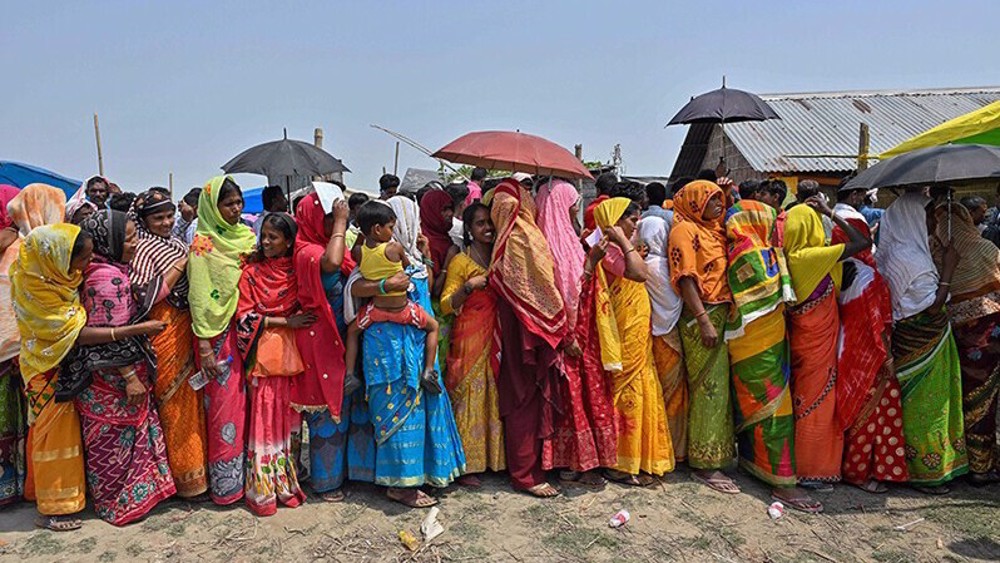
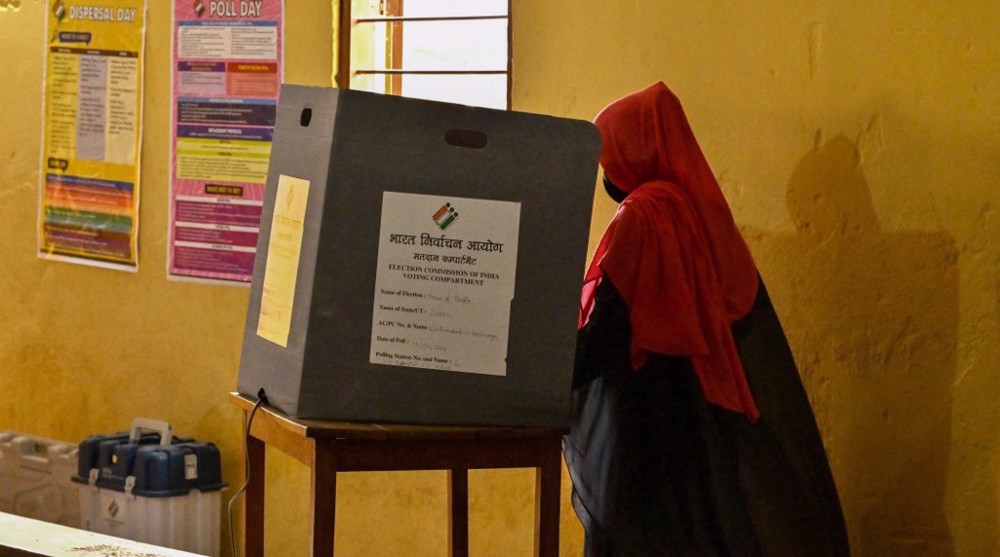
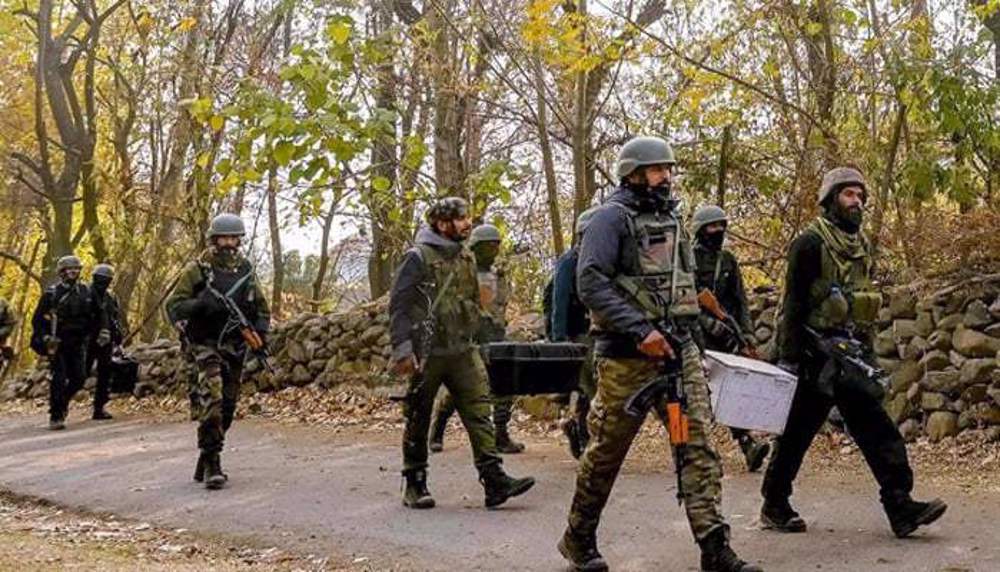
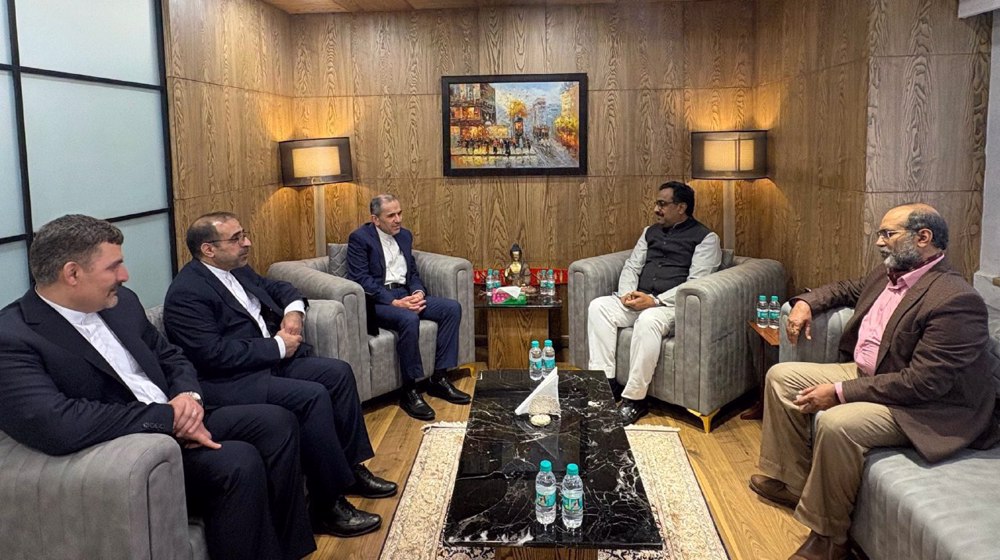
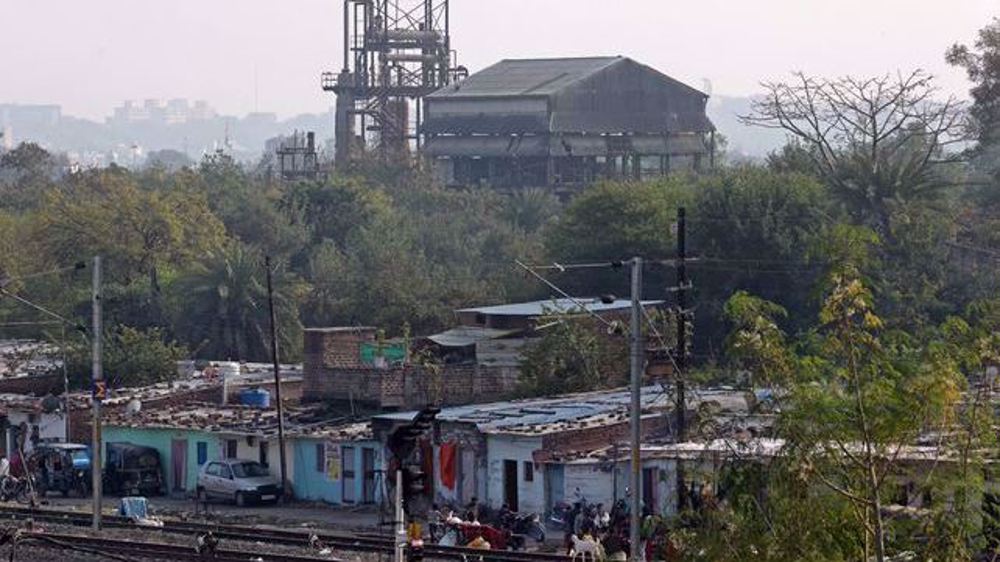



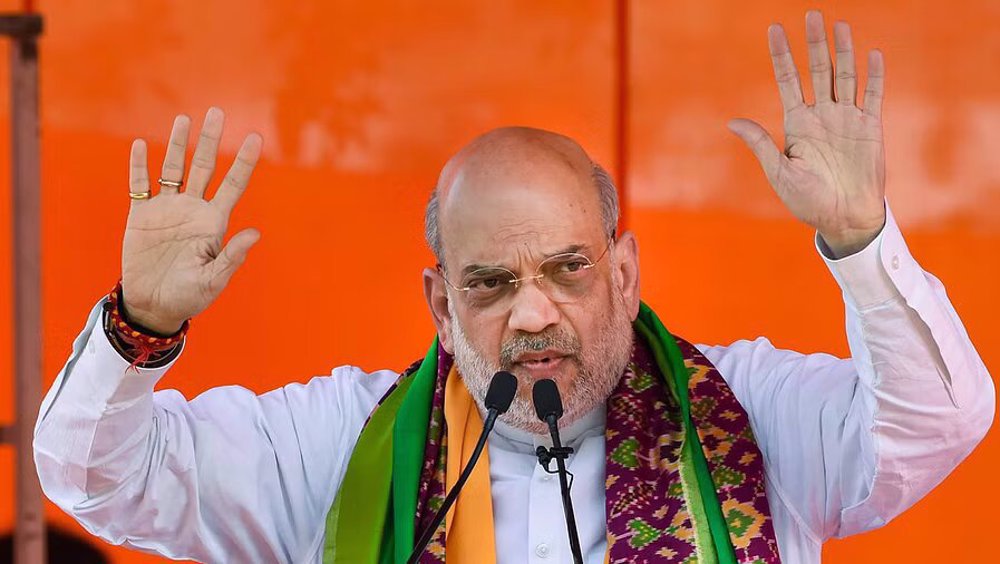
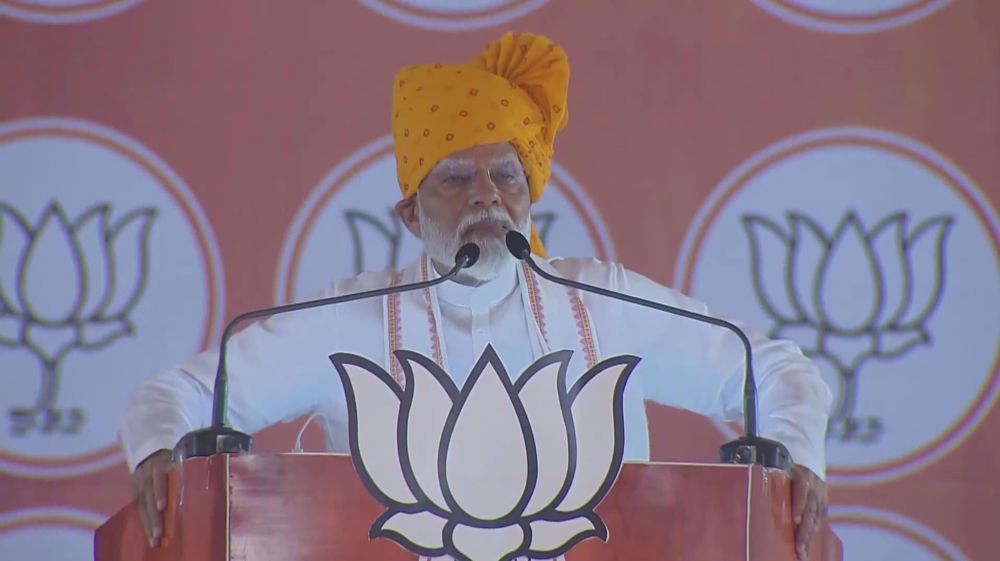
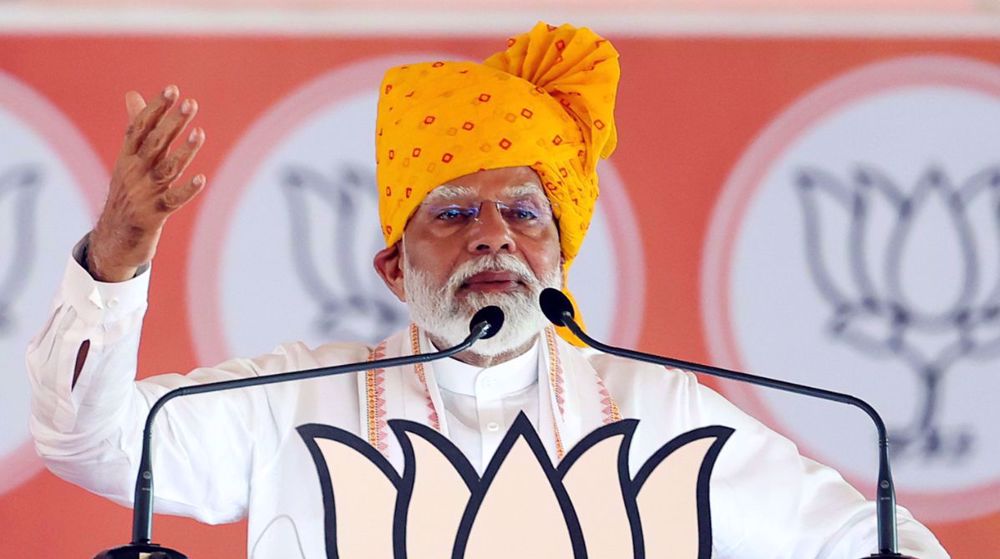
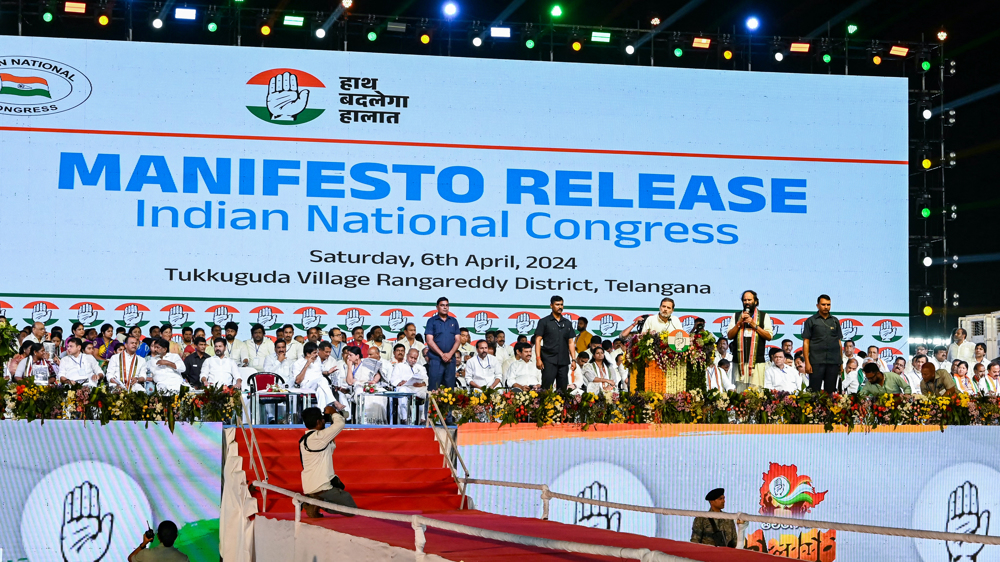

 This makes it easy to access the Press TV website
This makes it easy to access the Press TV website